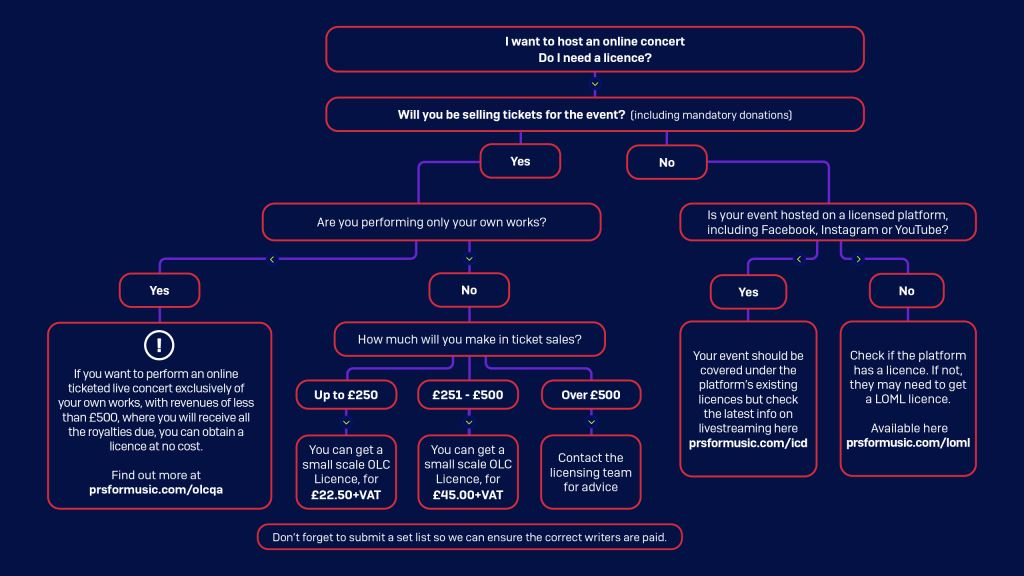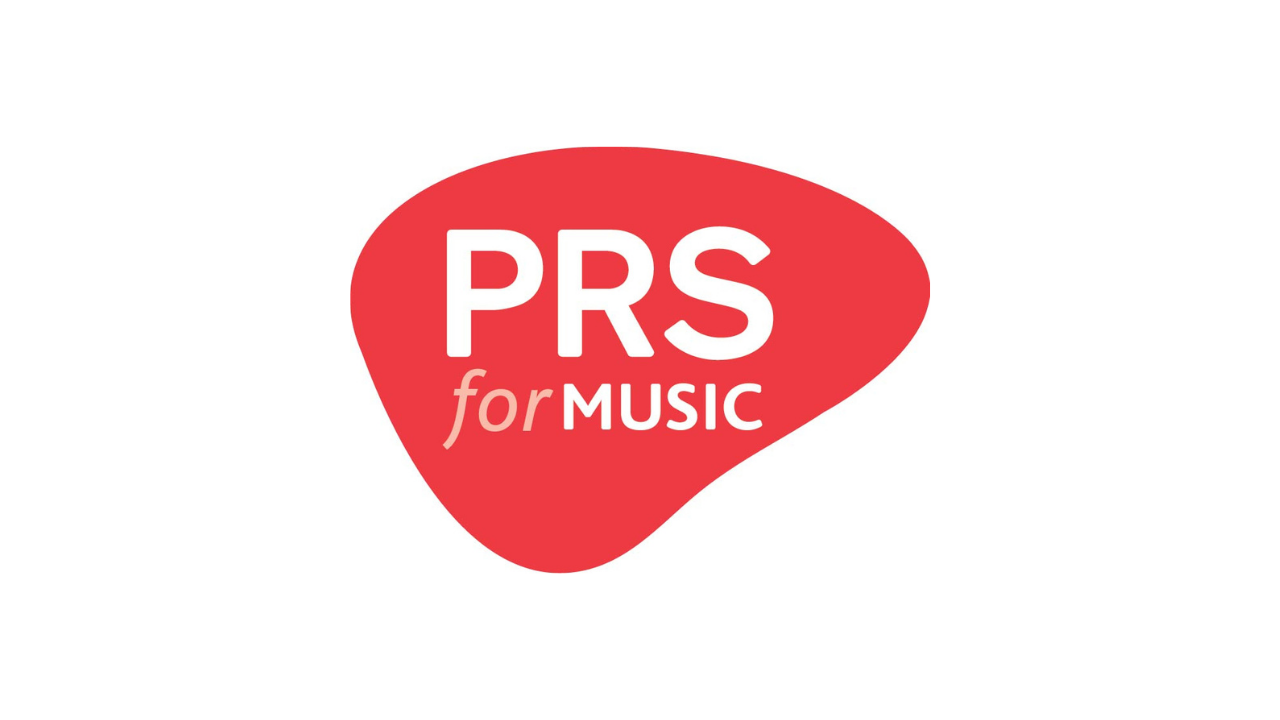Updated Story – 01/02/21
Citing feedback from its members, PRS for Music have today announced an amendment to its controversial tariff for small-scale livestreamed shows which was announced last week. Following significant back-lash from across the industry, the amendment means that artists performing their own material during the period the live sector is forced to remain closed can now obtain a licence at no cost.
As well as issuing a statement, PRS for Music have provided the following infographic to help further articulate information on their new Online Live Concert licence for small-scale livestreamed gigs, including the key amendment announced today:

PRS for Music stated: “We will not be seeking to license small scale online events which took place prior to 27 January 2021, when a licence was not available.”
For more information on online live concerts and the various licensing options from PRS for Music, please visit > http://prs.info/PALo50DnRsk.
PRS for Music have stated that they are keeping this area constantly updated.
Original Story – 28/01/21
Key Info
- PRS For Music have launched a new licensing portal for music creators, venues and promoters wanting to stage and livestream small-scale gigs, DJ events, classical concerts and theatrical events online.
- The new licence has been introduced “in response to the huge rise in livestreamed concerts as a result of the Coronavirus pandemic.”
SMIA
- We share the deep concerns about this new licence that have been expressed by our colleagues across the industry.
- We’re currently unclear as to who PRS for Music would define as the ‘licensee’. The fear is that multiple licences could need to be obtained for one event, resulting in significant losses of revenue from an income stream which has become artists’ lifeblood during the Covid-19 pandemic.
- If you have concerns about forthcoming livestream events and how you may be affected, please contact us at info@smia.org.uk
What it means for SMIA Members
- PRS for Music have stated that the licence will ensure that songwriters and composers are properly paid when their music is performed during small-scale livestream concerts.
- For live online events staged in the UK with revenues below £500, the new licence means event organisers are due to pay a fixed licence fee to obtain the necessary rights for their event.
- For events bringing in revenue of between £251 to £500, the licence costs £45 plus VAT. For events with revenue of £250 or less, the licence costs £22.50 plus VAT.
Industry Response
- The introduction of the new licence has been heavily criticised by representatives of Venues, Artist Managers and Artists, such as Music Venue Trust (MVT), the Music Managers Forum (MMF), Featured Artist Coalition (FAC) and Independent Venue Week; all of whom have raised key concerns regarding the implications of this new licence to an industry facing significant economic challenges.
- PRS for Music have been criticised for a lack of consultation with those it affects, and calls for the licence to be pulled have been far and wide across the music industry.
- The announcement comes during Independent Venue Week, which pivoted it’s programme to online livestreamed events due to the closure of music venues across the UK.
Why?
- It discourages live streaming through disproportionate cost.
- It drives streaming towards free platforms such as Facebook and YouTube, which have agreements with PRS but pay poorly.
- The distribution of royalties is opaque; it’s not made clear that where the performers and songwriters are the same people, they will receive all of these royalties.
- As a range of the show’s revenue, which for smaller shows is often for charitable intents, it charges between 9% and 100% of income, or more. These rates are completely out of line with any other standards for licensing costs and are a “regressive tax” where the more income there is, the lower the effective % is paid.
- There is a concern that events have been organised without prior knowledge of this license existing, and therefore, it alters budgets which could cause many events to be cancelled.
How would this license affect your music business activities? Get in touch and let us know: info@smia.org.uk
